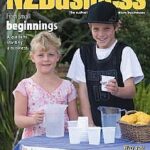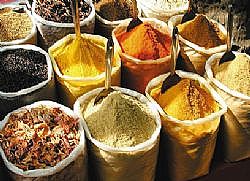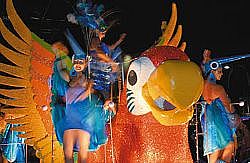Business just the ticket
How do you take on a virtual monopoly in the marketplace and succeed? Editor Glenn Baker went on the road with nakedbus.com’s Hamish Nuttall to see how it was done.
How do you take on a virtual monopoly in the marketplace and succeed? Editor Glenn Baker went on the road with nakedbus.com’s Hamish Nuttall to see how it was done.
The city to city bus market in New Zealand is worth around $50 million a year, and until 2006 was virtually monopolised by an incumbent operator which had around 90 percent of the market.
Then along came Hamish Nuttall, a man with 20 years experience in the bus business, who had rather different ideas about putting bums on bus seats and a burning ambition to secure a significant share of that $50 million market.
I had long recognised that there was a place for a low cost operator in this country, says Nuttall. Then a visit to the UK two years ago convinced me that the way to deliver this was over the Internet, as this [business model] absolutely crunched administration costs.
Based on hugely successful British online transport models such as EasyJet, nakedbus.com cuts the overheads from the ticketing process by providing Internet-only ticketing, which eliminates the need for call centres.
Today nakedbus.com is New Zealands fastest growing bus company, and yet its technically not a bus operator. It works wit
h established bus operators, who allocate a certain number of seats for marketing via the nakedbus.com website. The nakedbus.com branding, carried over onto the buses, is so strong that customers are under the impression that they are dealing with just the one company.
Nakedbus.com is famous for its $1 fares; there is one guaranteed on every service, and Nuttall says around ten percent of nakedbus seats are currently sold for $1.
He says their average fare is equal to 50 percent of the prevailing market fares and all their fares beat standard market adult prices by at least 25 percent.
Established last year on North Island routes, business has been growing at 20 percent per month. One example is the Auckland-Hastings route which filled just ten seats when it began four-and-a-half months ago, and today fills 35.
As of February this year, the South Island has been enjoying the same nakedbus benefits, effectively making nakedbus.com the countrys second national bus carrier.
So how hard has it been to gain a foothold in the face of such well-established competition?
Well, things can certainly become interesting in the case of nakedbus this involved certain marketing terminology and pricing structures on shared routes.
Despite this, Nuttall says getting the service established was actually relatively easy.
The main challenge was convincing [bus] operators to work with us, he recalls. The ones we do work with recognise what we are aiming to do and support our goals. We offer a very low risk approach selling seats they cant sell, so we contribute immediately to their bottom line.
Nuttall says the low risk approach was key to their success in getting established in the market. For a start, the initial investment required was only in the six figures (partially covered by partner Pavlovich Services). His advice for other start-ups looking to compete with dominant players is to eliminate costs and find that low risk entry point.
Identify fixed costs that your competitor has that you can avoid, and look for the key stakeholders that you must get on side.
The recent expansion into the South Island means the company is now offering 30 buses covering 20 routes and with 150-plus destinations. Nuttall says nakedbus.com brings a much needed boost to city to city public transport and New Zealands tourism infrastructure. He says the service is not only good for peoples wallets but also the environment. Anecdotal evidence suggests that around ten percent of nakedbus.com users had previously driven cars. It seems the expectation of travelling aboard a nakedbus is not just one of comfort, speed, safety and reliability, but one of excitement and fun. Its a far cry from the old Road Services buses many of us grew up with. NZB




